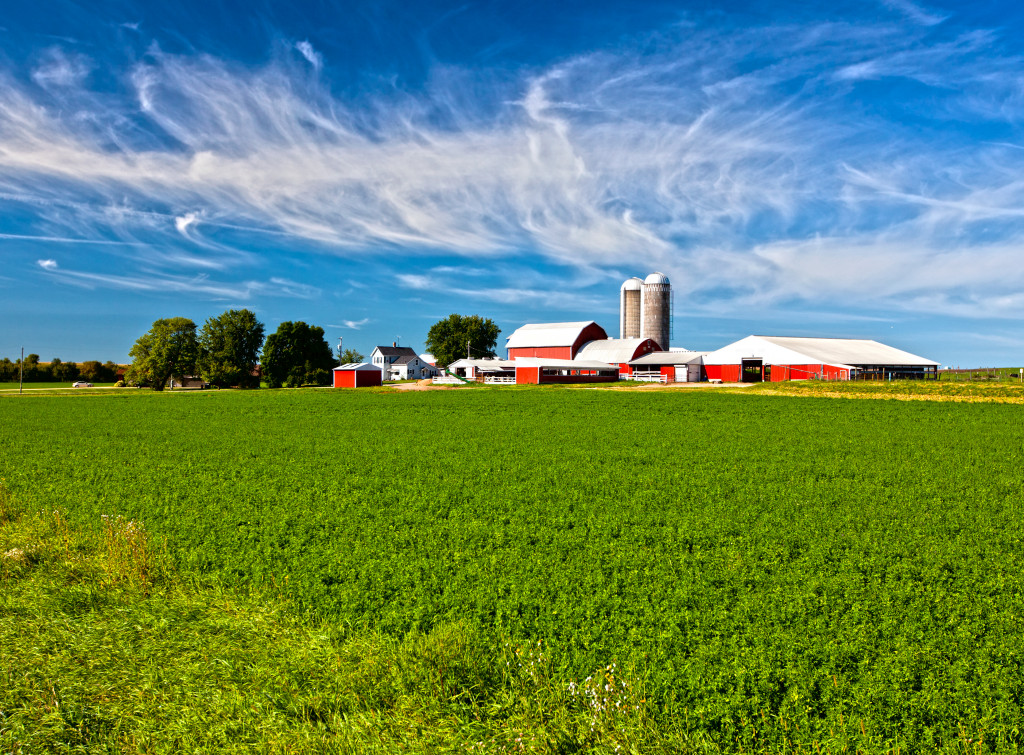- The agricultural industry is a trillion-dollar sector with great opportunities for entrepreneurs.
- Climate and weather changes can significantly impact crops and livestock.
- Market demand affects the price and sale of farm products, so entrepreneurs should monitor trends closely.
- Labor scarcity is a significant risk, therefore, competitive pay and a safe working environment should be offered.
- When starting an agricultural business, costs and financing, environmental and legal risks, and technology investments should also be considered.
Agriculture has always been an essential sector in the economy of any country. If you’re considering starting an agricultural business, you’re not alone. The agricultural industry can offer great opportunities for entrepreneurs who are willing to put in the work. As with any business, however, there are risks involved. Before taking that leap, you must know the potential risks and rewards.
The Agricultural Sector Today
The U.S. is in dire need of more food production. As the population in the country continues to grow, the demand for food increases. The agricultural industry is one of the few industries that has remained relatively strong during these difficult economic times. As a result, it’s an attractive sector for entrepreneurs looking for opportunities in agriculture. It’s worth a trillion dollars today, but it’s not without risks. Here are some of those risks.
Climate and Weather Changes
The first risk to consider is climate and weather changes. While farming depends on rainfall, extreme weather events can significantly impact crops and livestock. Floods, droughts, strong winds, and hurricanes can damage farmland, reduce crop yields, or even wipe out entire crops such as maize or rice. Therefore, developing a contingency plan that considers weather changes is essential. To minimize the risk of crop failure, consider implementing techniques such as drip irrigation or greenhouses that provide better control over the growing environment.

Changes in Market Demand
Market demand affects the price and sale of farm products. Because of that, it’s essential to monitor market trends and adjust your operations accordingly. For instance, investing in organic farming practices could prove very profitable if there is a demand for organic products. On the other hand, relying too much on a single crop or a single buyer could be a massive risk. In such cases, it’s recommended to diversify the crops or find new buyers in different geographic locations.
Labor Availability
Farming requires significant labor, including sowing, plowing, harvesting, and caring for the animals. Labor scarcity is a significant risk factor, and ensuring proper staffing is essential for a successful business operation.
There’s always the risk of losing the workforce due to unexpected factors, such as recruitment efforts by more prominent companies or unfavorable weather changes. To mitigate such risk, consider offering competitive pay, a safe working environment, and work benefits such as healthcare and time off.
Costs and Financing
Another crucial risk to consider when starting an agricultural business is the cost of running it. It includes purchasing or renting land, buying seeds and machinery, and ongoing operational expenses.
The cost of equipment maintenance and repairs can also add up quickly. Financing your agricultural business is a crucial step that requires careful consideration and research. Consider working with your business bank to establish a line of credit or exploring government-backed loan programs. However, incurring too much debt too early can quickly strain your business financially.
Environmental and Legal Risks
Finally, there are several environmental and legal risks to consider. One major environmental risk factor is soil contamination, which can cause serious problems for your business and the entire ecosystem.
Legal risks can include zoning laws that restrict the use of farmland for commercial purposes or strict regulations on the use of pesticides that could affect the sale of your produce. It’s essential to stay current on environmental and legal requirements and regulations to keep your business compliant with any relevant authorities.
How to Get Ahead
Avoiding the risks above is one way to survive in the industry. But if you want your service to flourish, consider following these tips.

Invest in Transportation
Transportation is crucial in the field of agriculture. You must transport the produce from your farm to the buyers or markets. Investing in adequate transportation means you won’t have to worry about delays or spoilage due to poor logistics.
A good option is to have a cargo trailer for your vehicle. A robust bumper pull cargo trailer can provide plenty of room for transportation. It can transport animals, and all sorts of farm produce to the market. You must connect it to your vehicle’s hitch and are ready to go.
Stay Current on Technology
Technology plays a vital role in the agriculture industry today. Investing in GPS tracking, soil sensors, drones, and remote monitoring technologies can improve efficiency and reduce costs. These tools can help monitor crops in real-time, detect potential problems early, optimize irrigation, and provide better insights into crop health.
Focus on Quality Control
Quality control is one of the most important aspects of running an agricultural business. You must ensure that all products leaving your farm meet the highest standards for quality. Consider implementing a quality control system that monitors developments from start to finish while ensuring compliance with applicable regulations and laws. Ensure that your staff is well-trained and knowledgeable about the quality control process.
Understanding and mitigating common risks ensures that your agricultural business is successful and profitable in the long run. Always conduct thorough research to understand the industry nuances before taking any major steps.



